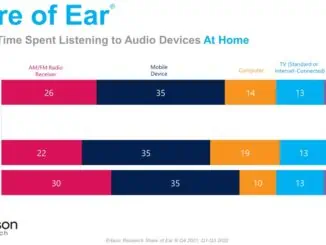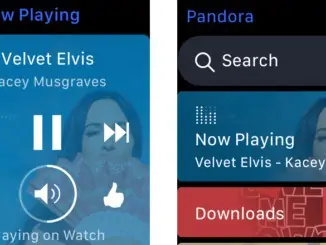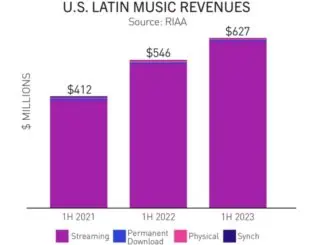
Half of Americans can’t name a classical composer but a third say they like to listen to classical music according to a recent survey* commissioned by Primephonic and conducted by YouGov. The survey results published in a recent blog posting show that although Americans know very little about classical music, they like to listen to it. Of those that do, more than half of those who listen do not do so regularly.
In the US there is concern that classical music is declining in popularity but when asked, 31% of Americans say that they like to listen to classical music. Surprisingly the popularity of classical music does not seem to significantly differ across age, state and ethnicity.
Primephonic Classical Music survey results
- Young audiences like to listen to classical music almost as much as older ones. 27% of Americans between 18 and 34 like to listen to classical, 32% of Americans between 35 and 55 and 34% of Americans older than 55.
Who said younger Americans do not like classical music?
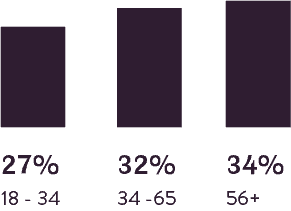
- Regional differences are also very limited. In the Northeast, 31% of Americans like to listen to classical music, in the South and West 32%, and in the Midwest 29%. Despite growing regional socio-economic and political differences in the US, it is remarkable to see how consistent interest in classical music remains.
- Americans of Asian, Latino and Caucasian descent appear to enjoy classical music alike. The common myth that classical music is a Caucasian genre is debunked. 34% of Caucasian Americans, 27% of Latino Americans and 37% of ‘other’ Americans like to listen to classical music. Popularity among African Americans appears a bit lower but is still quite sizeable at 21%.
Classical music is a multicultural genre

- Men and women have a similar interest in classical music, at 31% and 32% respectively. This is not a surprising finding as earlier studies have shown that among music students, orchestra members and independent music practitioners there is a near perfect gender balance.
- Classical music is often believed to be a rich person’s hobby. The reality is that appreciation of classical music across income levels is not that different. 25% of Americans with an annual income below $40k like to listen to classical music, 33% with an annual income of $40-80k, and 39% with an annual income above $80k.
- Education is a driver of classical music appreciation. The higher the education level, the more likely one is to like to listen to classical music. Among Americans with a high school diploma or some high school education, only 19% like to listen to classical music. For Americans who have had some college education the number rises to 35% and for those with a college degree the number rises further to 43%. The highest appreciation for classical music is among Americans with a postgraduate degree, with almost half (48%) liking to listen to classical music. It is interesting that education level, more than income, drives appreciation for classical music. Furthermore, it appears that self-made wealthier Americans like classical music less than better educated Americans with a lower income.
Limited classical music knowledge
When asked to name a composer they know, 46% of Americans could not name even one classical composer. Among younger Americans (18-34), more than half (52%) could not name a single composer. Perhaps less surprising is the difference across education levels: 64% of Americans with a high school diploma could not name a composer while only 25% of college graduates could not name one.
Half of Americans who like classical music do not listen to it regularly
31% of American adults like to listen to classical music. However, actual listening is much lower: only 14% of Americans listen to classical music regularly. In other words, more than half of those Americans who enjoy listening to classical music do not listen to it regularly (53%). The number of Americans who listen to classical music has the potential to double if the genre were to reach all of those who like to listen to classical music
The popularity of classical music could double if it better reaches its target group.
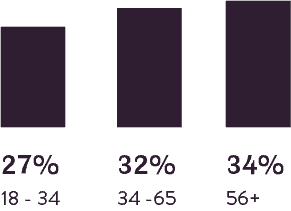
One suggested reason for the decline from interest to actual listening behaviour is limited accessibility to classical music. CDs and downloads used to be the most successful channels for classical music distribution, but these are increasingly being replaced by music streaming services. However, since most streaming services are designed for pop music, the classical music streaming experience is generally flawed. According to Primephonic, ‘Classical music fans frequently complain about the inadequate results provided by most streaming search engines, predictable and uninspiring recommendations, low audio quality, and missing album information. These pain points probably explain the unpopularity of classical music on streaming services. Classical music represents 4% of worldwide music consumption, but only 0.7% of music streaming. Classical music is underrepresented on streaming services by a factor of 5 to 6.’
Thomas Steffens, Primephonic’s CEO, said: “The underlying interest in classical music among Americans is still rather positive. The real problem of classical music is therefore not low interest, but its inability to reach millions of consumers that have an interest in the genre. We are moving towards a streaming only world. Classical music cannot afford to be underrepresented and undeserved on streaming as it currently is. It is therefore critical that classical music fixes its streaming problem. Therefore, we have developed a streaming service with much better classical search, much more inspiring recommendations, and higher audio quality.”
*Primephonic commissioned YouGov PLC, a third party, professional research and consulting organization, to poll the views of 1,000 representative US adults (aged 18+).during May and June 2019.
Primephonic is now available in 154 countries with a classical music catalogue containing 2.5 million tracks.


